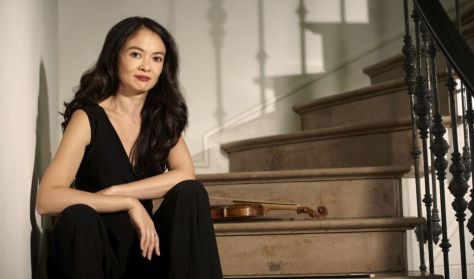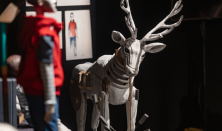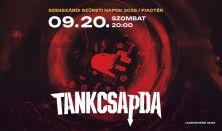As one of the greatest authorities in the field of Baroque gesture, she has enlivened the BFO’s historical performances with her expertise – through period costumes and authentic motions – since 2011. This time again, the artistic director of the program, including the prolific Telemann, the forgotten Fasch and the ever-inspiring Handel, will be violinist Midori Seiler, who has been responsible for the BFO’s early music concerts for years. The program will conclude with Handel’s emotional cantata, related to the composer’s opera oeuvre in a number of ways, which almost demands some movements on stage. The cantata will feature the solo performance of Canadian-born soprano Stefanie True, a returning guest of the BFO.
A French-style overture following the slow-fast-slow pattern, and then a series of dance movements and character pieces: this is the structure of French suites (or ouverture-suites), of which Telemann composed more than a hundred. The brilliantly witty movements of the piece in G minor include Neapolitan music, a polonaise, a dance at frenzied pace, a minuet, a musette, giving the piece its nickname, and a harlequinade, evoking clowns.
Although Telemann highly regarded the work of Johann Friedrich Fasch, the composer, popular in his own age, was later almost forgotten. Nevertheless, he is remembered for refusing to apply for the position of the organist at the Thomaskirche in Leipzig, where Bach was then invited. His compositions are the link between the Baroque and Classical periods; his four-movement symphony in G major still has a Baroque fugue, but we can also discover the new, thematic style in the piece.
Telemann’s most famous work, Tafelmusik – or “Table Music” to accompany a festive dinner – consisting of three series, was composed in 1733. The concerto of the second series is characterized by a complete equality of the instruments. This is much more of a team effort than a contest. The final movement is hardly a concerto anymore; it becomes the joint jubilation of an ensemble in total unity.
Composing music of over two and a half hours within a month – this is the story of the origin of Handel’s Concerti Grossi, Op. 6. The pieces, written in 1739, pay tribute to Corelli, but concerning the order of their movements and the instructions for the musicians, they are much more free-flowing than their models. The penultimate piece of the series was a reworking of Handel’s yet unpublished organ concerto in A major. The result: a French overture, a six-bar largo, a copious andante and a virtuoso air.
The aria in Handel’s Rinaldo, starting with “Lascia ch’io pianga”, is widely known. And many people also know that this melody was originally part of an oratorio. The theme, used by Handel several times, also appears in the secular cantata entitled Armida abbandonata. The soul-wrenching drama of the abandoned woman reveals, through expressive music, the gestures of disappointment, refusal, revenge and pleading. Eventually, a prayer to the god of love remans unanswered, dying away at the end of the cantata.
Georg Philipp Telemann: Orchestral Suite in G minor (“La musette”), TWV 55:g1
Johann Friedrich Fasch: Symphony for Strings in G major, FWV M:G5
Georg Philipp Telemann: Concerto for Three Violins in F major, TWV 53:F1
George Frideric Handel: Concerto Grosso in A major, Op. 6, No. 11, HWV 329
Cantata Armida abbandonata, HWV 105
Stefanie True (soprano)
artistic director and Baroque violin: Midori Seiler
Baroque gesture: Sigrid T’Hooft












